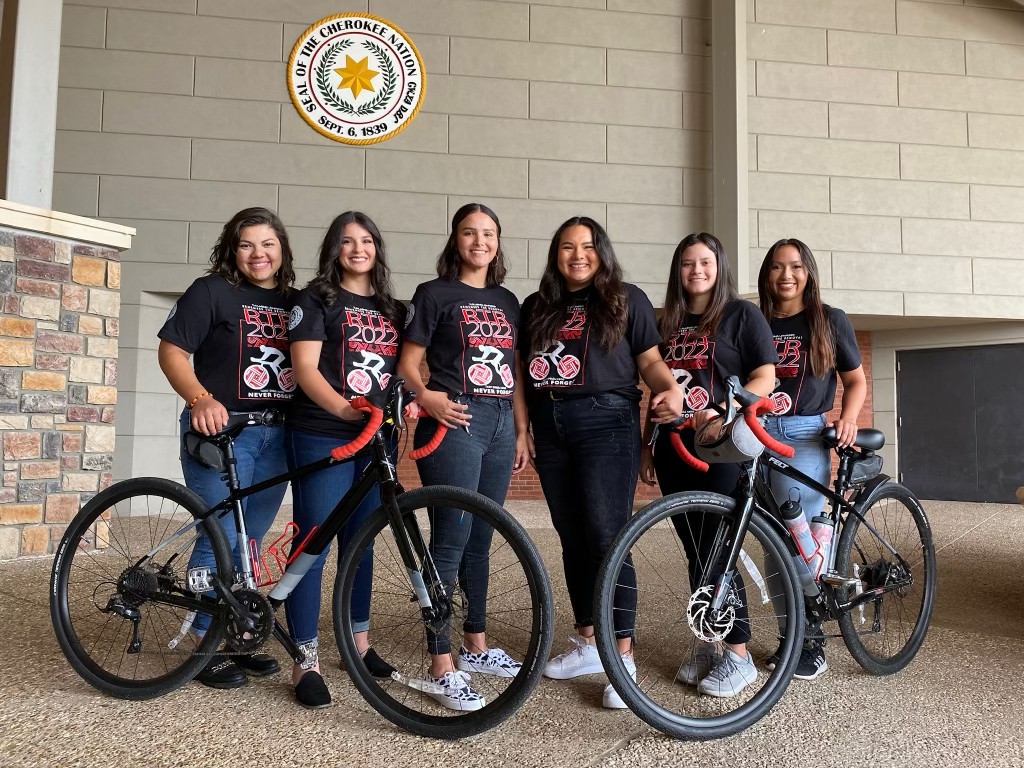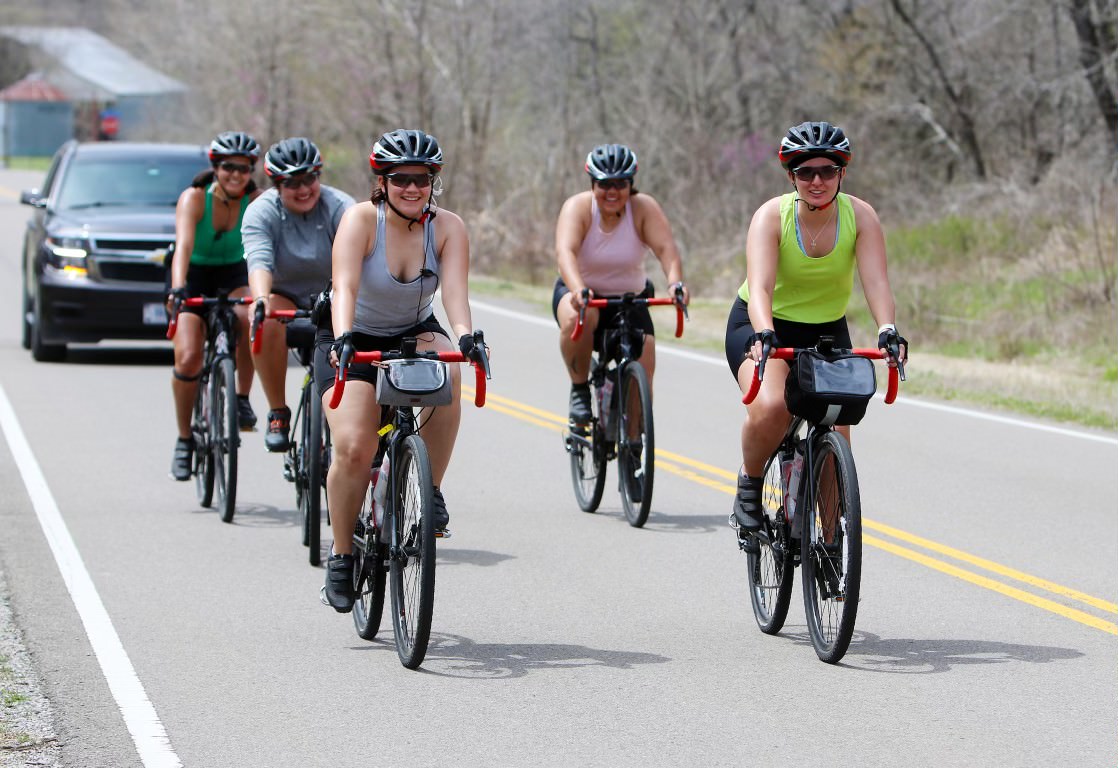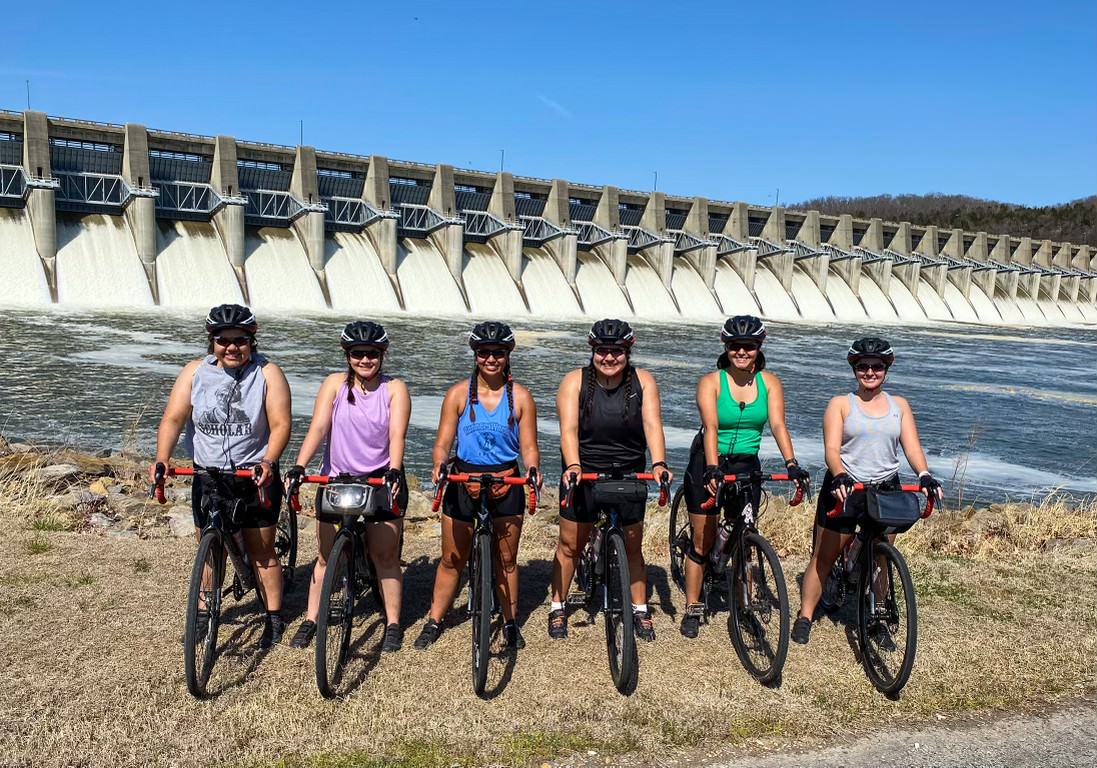Trail of Tears: Cherokee women to ride 950 miles to honor ancestors’ devastating displacement
Remember the Removal Bike Ride follows the migration trail where 4,000 citizens of the Cherokee Nation lost their lives.


The latest race content, interviews, features, reviews and expert buying guides, direct to your inbox!
You are now subscribed
Your newsletter sign-up was successful
In the late 1830s, the Indian Removal Act forced the Cherokee Nation out of their lands between the Appalachian Mountains and the Mississippi River. The path of their forced relocation covered some 5,045 miles across nine states. Of the approximately 16,000 citizens of the Cherokee Nation who were forced to relocate, about 4,000 died of starvation, disease or exposure to the elements along the long march that would later become known as the Trail of Tears.
Starting May 30, a group of six Cherokee women will retrace part of the journey by bike to honor their ancestors and ensure they are not forgotten.
“I wanted to honor my ancestors in the best way that I could and to do that was to have the most information that you could possibly have,” said 24-year-old rider Emily Christie from Stilwell, Oklahoma. “I have applied and been chosen to represent our people on this ride, as well as to honor our ancestors and to pay tribute to those who passed away on the trail.”
The Cherokee Nation first held the Remember the Removal Bike Ride in 1984 with the aim of having riders pay tribute to their ancestors while learning about the history of their people. The event has been held annually since 2009, but this year marks the first time that the team is made up of all Cherokee women. Oklahoma residents Emily Christie, Kortney Dry, Kayce O’Field, Jeanetta Leach, Madison Whitekiller and Desiree Matthews will be joined on the ride by seven cyclists from the Eastern Band of the Cherokee Indians.
“Retracing our steps, the steps of our ancestors, will be absolutely amazing, but it’s also extremely surreal to know that we are walking the same steps that our ancestors did not make it through,” Christie said.
“And to know that these are the exact places that these things occurred but to know that there’s strength that lies in these steps as well.”
The 950-mile ride begins in New Echota, a former capital of the Cherokee Nation, and passes through seven states: Georgia, Tennessee, Kentucky, Illinois, Missouri, Arkansas and Oklahoma. Along the way, the group will visit Cherokee gravesites and landmarks, such as Mantle Rock, where many Cherokee people had to camp for approximately 20 days as they waited to cross the frozen Ohio River.
The latest race content, interviews, features, reviews and expert buying guides, direct to your inbox!
Remember the Removal ride coordinator and trainer, Will Chavez, explained that in addition to being a remembrance of the displaced, the ride also serves as a leadership program. Youth citizens of the Cherokee Nation between ages 16 and 24 are encouraged to apply in order to improve their leadership, confidence and self-esteem.
“When they go out and actually do the ride, they stop at the sites that they read about and maybe even some of the sites where their families came from,” Chavez said. “It is pretty significant for the kids when they can actually see the places their families came from.”
The group’s training began in December with gym sessions to build strength and stamina. Outdoor riding started in February with Chavez teaching the riders the basics, from shifting between the gears to using clipless bike shoes.
“They really picked all of that up and by now, they’ve really got a lot of experience with their bikes,” Chavez said with pride. “This weekend, they did 50 miles on one day…They’ll average 60 miles a day on the ride”
Before training for the ride, Christie knew how to ride a bike but had never ridden a road or gravel bike. Christie said they will be riding gravel bikes, which have room for wider tires for more comfort.
Training has been consistent whenever COVID restrictions allowed.
“We will do anything from HIIT workouts to spin bikes, [and] we have done some yoga,” Christie said. “But we are on our bikes outside as much as possible.”
Chavez said the group tries to train on terrain like the roads they will see on the ride, such as riding a lot of hills to simulate the many hills in Tennessee and Missouri, among others. Christie said she is nervous about riding the “legitimate mountains” on the trail that contrast the flat terrain she is used to in Oklahoma.
“I am nervous about the mountains specifically just because of the incline and the length of them,” she said. “However, one thing that I’m more nervous about is the mental toll it will take.”
Christie said it will be emotionally taxing following this trail knowing that terrible things occurred to the Cherokee people on it. To this end, the riders have completed emotional training and have taken historical and language classes in preparation for the journey.
A former ride participant himself, Chavez believes the long ride leaves a lasting impact on the riders, and he looks forward to seeing how the ride makes the participants stronger as they go along.
“During the three weeks that they’re doing this trip, they start to grow and change and see things a little differently than they did before they left,” Chavez said. “When they get home, their parents and loved ones will say they really did change.”
Christie said her fellow riders already feel like her “sisters.” She said she looks forward to the experience of the ride, having spoken with past riders who said the ride was enlightening and made them feel more in touch with their heritage.
“They have a new reason to go forward,” she said. “They may have appreciated it before, but there’s a deeper appreciation after you finish the ride and a deeper bond that you have, not only to your teammates, but to your ancestors and to our ancestors.”
She said she is looking forward to feeling this connection through the ride.
“It’s more than a bike ride. It’s our culture, and it’s our launching pad,” Christie said. “We can only go forward and create a better life for our people from here on out.”

Chiara Kim is a freshman studying Journalism in the Medill School of Journalism, Media, Integrated Marketing Communications, along with Economics with a French minor, at Northwestern University. She was born and raised in Salt Lake City, Utah, surrounded by the racers on her parents’ professional cycling team. She is passionate about using writing to share underrepresented stories and connect with different communities. In her free time, Chiara writes for The Daily Northwestern, rows for the Northwestern Crew team, and is a member of the Chi Omega Fraternity.

